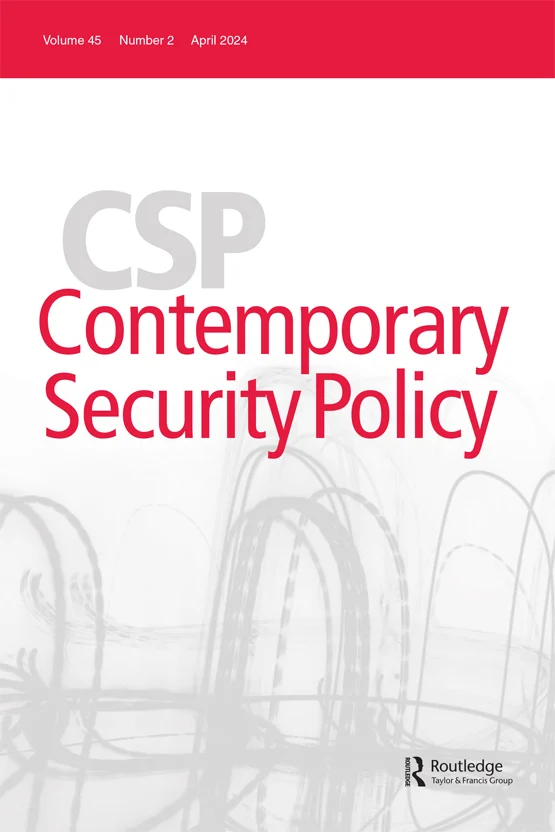战略伙伴关系的局限性:对中国在俄乌战争中的作用的启示
IF 5
1区 社会学
Q1 INTERNATIONAL RELATIONS
引用次数: 2
摘要
俄罗斯入侵乌克兰会让中俄两国走得更近还是更远,还是一切如常?本文通过阐述中俄战略伙伴关系的主要特征来解决这一问题。报告认为,战略伙伴关系具有非正式性、平等性和包容性的特点,本质上不同于联盟或结盟。这些特点使北京与莫斯科入侵乌克兰保持距离。这使得中国不太可能同时在东亚进行侵略,也不太可能在冲突中进行调解。这有效地排除了中俄轴心崛起的可能性。随着中国努力平衡与俄罗斯的密切关系以及与西方的经济接触,北京更有可能维持,而不是加强或削弱与莫斯科的战略伙伴关系。本文章由计算机程序翻译,如有差异,请以英文原文为准。
The limits of strategic partnerships: Implications for China’s role in the Russia-Ukraine war
ABSTRACT
Will Russia’s invasion of Ukraine bring China and Russia closer together or drive them farther apart, or will it be business as usual? This article addresses this question by conceptualizing the main characteristics of the China–Russia strategic partnership. It argues that a strategic partnership, characterized as it is by informality, equality, and inclusivity, is essentially different from an alliance or alignment. These characteristics allow Beijing to distance itself from Moscow’s invasion of Ukraine. This makes it unlikely that China will attempt any simultaneous aggression in East Asia or that it will be able to mediate in the conflict. This effectively rules out the rise of a China–Russia axis. As China strives to balance its close ties with Russia and its economic engagement with the West, Beijing is more likely to maintain, rather than strengthen or weaken, its strategic partnership with Moscow.
求助全文
通过发布文献求助,成功后即可免费获取论文全文。
去求助
来源期刊

Contemporary Security Policy
Multiple-
CiteScore
14.60
自引率
6.80%
发文量
22
期刊介绍:
One of the oldest peer-reviewed journals in international conflict and security, Contemporary Security Policy promotes theoretically-based research on policy problems of armed conflict, intervention and conflict resolution. Since it first appeared in 1980, CSP has established its unique place as a meeting ground for research at the nexus of theory and policy.
Spanning the gap between academic and policy approaches, CSP offers policy analysts a place to pursue fundamental issues, and academic writers a venue for addressing policy. Major fields of concern include:
War and armed conflict
Peacekeeping
Conflict resolution
Arms control and disarmament
Defense policy
Strategic culture
International institutions.
CSP is committed to a broad range of intellectual perspectives. Articles promote new analytical approaches, iconoclastic interpretations and previously overlooked perspectives. Its pages encourage novel contributions and outlooks, not particular methodologies or policy goals. Its geographical scope is worldwide and includes security challenges in Europe, Africa, the Middle-East and Asia. Authors are encouraged to examine established priorities in innovative ways and to apply traditional methods to new problems.
 求助内容:
求助内容: 应助结果提醒方式:
应助结果提醒方式:


